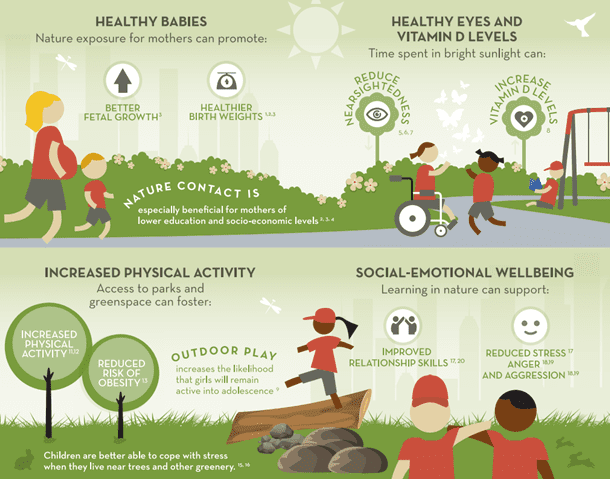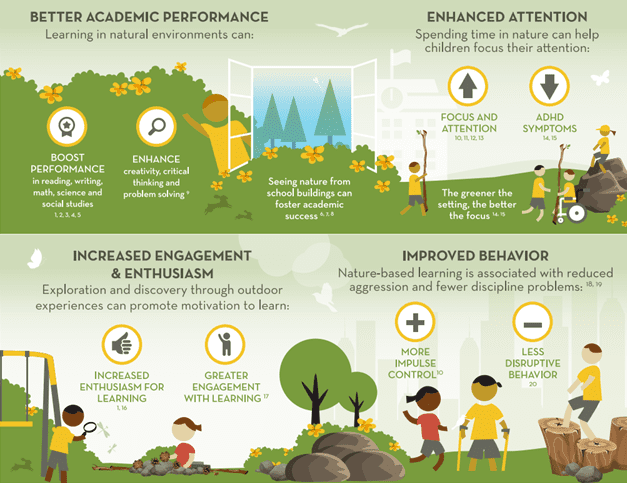
Intuitively, we know that time spent outdoors in nature is beneficial. Stressed out? A walk in the park might be just what you need. Given a choice between a jog in a park or a run around an indoor track, most will choose to be outdoors. Add in a pandemic to the mix, and spending time in our public parks is one of the best options for exercise, connecting with friends, finding peace and quiet, and recreating.
Now we can prove it. Recent studies over the last several years have quantified and documented the benefits of time spent outdoors. Right here in Seattle, the University of Washington’s Nature and Health Program creates an academic space for research into these benefits for children, veterans, and many others.
The Children and Nature Network, a national organization founded by Richard Louv (author of Last Child in the Woods and Vitamin N) and others, has collected over a thousand peer-reviewed articles in their Research Library describing the benefits of nature. Exposure to nature improves children’s health, social-emotional well-being, and academic outcomes, as shown in the graphics below from C&NN.


The benefits of nature are so established now that there is a growing movement of pediatricians and other health care providers giving Park Prescriptions to improve physical, mental, and emotional health. Project Nature, a program of pediatrician organization BestStart Washington, aims to bring these benefits to children through their health care providers by providing developmentally appropriate resources to families. Seattle Parks and Recreation partners with Project Nature by advertising our recreation programs.
But you don’t need a doctor to tell you that a walk in the park is a good idea anymore. The proof is in, and the parks are waiting for you. So next time you are looking to boost your mood or your mental clarity, head to one of Seattle’s 485+ parks and get your Vitamin N.